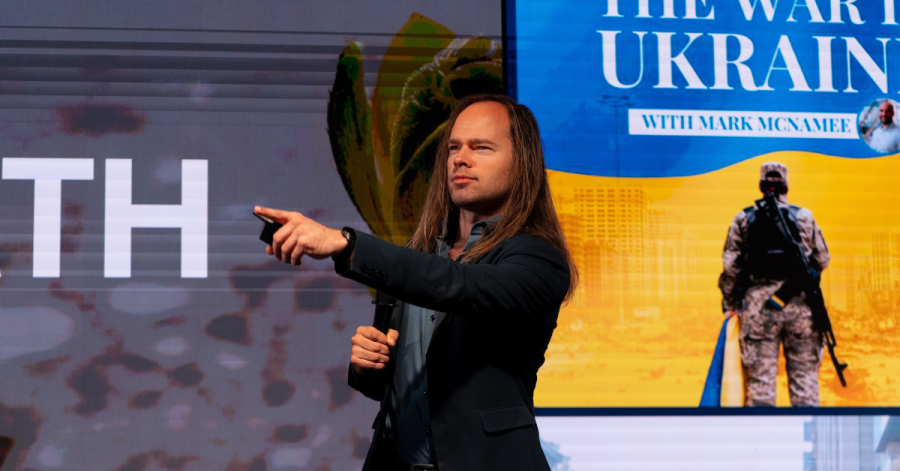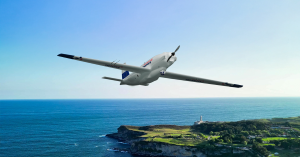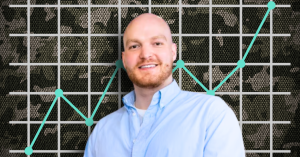Marijn Markus, a Dutch data scientist known for his detailed analysis of Russian propaganda on LinkedIn, argues that Europe’s slow response to strengthening its defenses stems from decades of military neglect and targeted disinformation. Part of his commentary first appeared in The Recursive’s editorial topic “Europe Is Preparing for War to Keep the Peace”, in the report State of defense and cybersecurity tech in CEE. We are publishing his full insights below in the form of an op-ed article.
________
As a European, I think part of the reason we were so slow to react to Russia’s growing threat is that we convinced ourselves, after the Cold War, that peace was the new default.
Economic ties, diplomacy, EU expansion — these were supposed to tame aggression. Military power? That was something for the past. In many capitals, even talking about defense felt provocative, almost taboo. So we disarmed, while countries like Russia quietly rearmed. We didn’t deter — we appeased and told ourselves that was enlightenment. And because of it, we only placated and rewarded Moscow’s aggression after Georgia (2008), Crimea (2014), Syria (2015) and then wondered why Putin thought he could get away with invading all of Ukraine.
At the same time, we let ourselves be manipulated.
Russian media like RT and Sputnik painted Moscow as a misunderstood, rational actor. They exploited our open societies, our political fringes, our guilt complexes. NATO was recast as a warmonger. Ukraine was smeared as corrupt and chaotic. And somehow, we bought into it. We allowed these narratives to seep into our own public opinion and policymaking. It wasn’t just propaganda — it was full-spectrum disinformation. Bots, troll farms, cyber campaigns.
They hit us where we were most vulnerable: our democracies, our free press, our tendency toward self-doubt and self-blame. “NATO provoked this.” “Ukraine is not our fight.” These weren’t just opinions — they were planted, paid, amplified and weaponized. And while we debate and hold back, Russia advances.
Beyond asymmetric warfare
Meanwhile, we missed how modern warfare was evolving.
We spent years focused on asymmetric warfare — Afghanistan, Iraq, counter-insurgency. That was our frame of reference: small units, insurgents, mines. But Ukraine changed the game. This isn’t counterterrorism — this is state-on-state, army-against-army, with drones, hypersonics, EW, and massive artillery duels. And the shocking part is that only two countries in the world today actually have experience fighting that kind of war: Ukraine and Russia.
Our brothers and sisters in Ukraine are writing the future of warfare in real time — and we’re still catching up. This is why we need Ukraine as an ally, and why we need Ukraine in NATO more than Ukraine needs NATO: There is no other country in the world that will teach us modern warfare.
Europe’s tech gaps need immediate fixing
I hear generals talk about five-year innovation plans. But let’s be honest — we don’t have five years. The current technological gaps in Western militaries, especially those revealed by the war in Ukraine, can be realistically addressed, but not overnight. Our success will depend on industrial capacity, political will, and doctrinal flexibility.
We’re finally investing in UAVs and anti-drone systems, but we’re still playing catch-up. Our stockpiles were built for peacekeeping, not prolonged conflict. The shell shortage is real, but solvable — if we treat industrial mobilization as a wartime priority, not just a business.
We have the tech, what we lack is battlefield integration — both between soldiers and IT and between nations. Cyber capabilities need to move from the back office to the front line, fast. IT in European militaries is lagging hard, and very much dependent on external software and staff. We’re entering an age of real-time, data-driven warfare. NATO’s DIANA and similar efforts are a start, but interoperability and speed will make or break us. Ukraine’s DELTA situational awareness system would be a priority.
The points above can be fixed quickly. Others will take years of money, coordination, and political courage.
We have the talent and the tech, but we need to coordinate
Every country wants its own tank, its own jet, its own defense contracts. The result? Dozens of overlapping systems, zero efficiency. Until we get serious about joint European procurement and collaborate between countries, we’ll stay weak — and expensive. We have no European equivalent to the Patriot missile, a frightening statement we don’t hear often enough. We rely on the U.S. to protect our skies.
We talk about rapid deployment but the U.S. still flies most of our heavy kit. Europe has no serious strategic lift — airplanes, helicopters etc. In a real crisis, that’s not a gap — that’s a liability. Our armies were built for peacekeeping, not peer-to-peer war. Fixing this means retraining, expanding reserves, and rebuilding cold-war style readiness — not popular with voters. But this will be a hard sell to many electorates.
The good news? The money, the talent, and the tech all exist within Europe. The bad news? Coordination, production speed, and political cohesion often don’t. What’s lacking most of all is a belief in ourselves..
This time, we can lead better
What we lack most of all is belief in ourselves, as Europeans. Let’s be honest: the last time we as Europeans believed in ourselves — really believed — we didn’t just defend our borders. We conquered, colonized, and carved up the world. Our empires stretched across continents. For centuries, European power defined the global order — militarily, politically, economically. Even the world’s current superpower, the United States, is in many ways our illegitimate stepchild, born of European ideas, conflicts, and ambitions.
Now, let’s be absolutely clear — I’m not saying we should repeat those mistakes. Colonialism was brutal, extractive, and morally indefensible. But the sheer scale of what Europe once accomplished — for better and worse — proves a point: when we act with unity and self-confidence, we change the world.
Today, we’ve convinced ourselves that we’re fragile, post-heroic, dependent on others for our defense. We’ve outsourced deterrence to Washington and outsourced ambition to Brussels bureaucracy and comfortable fatalism. But our talent, our tech, and our history all say otherwise.
Strategic autonomy doesn’t mean isolation or arrogance, it means not being helpless. It means remembering that we’ve led before — and this time, we can lead better. Not through empires, but through example. Not through domination, but through dignity and strength.
It’s time we start believing in ourselves again.








